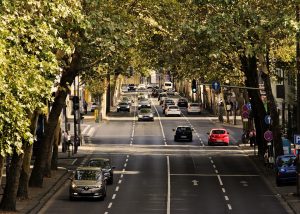Chicago’s Mayor Lori Lightfoot announced a new grant program together with the Chicago Department of Business Affairs and Consumer Protection. This initiative paves the way for nonprofits to assist small businesses that were negatively impacted by the pandemic.
The COVID-19 Small Business Support Program has allocated $2.7 million to 41 NGOs that will offer targeted assistance to Chicago’s small business owners and innovators. Through the program, a variety of different services will be offered including free counseling, coaching, media campaigns, and press coverage. Funding will also be provided for public outdoor activities to showcase small businesses, like “Live Love Shop Rogers Park.”
“[This program] provides an important opportunity to lay the foundation for an enduring, equitable, and inclusive economy. I am grateful to BACP and its partners for bringing this program to life, which truly serves as the next step in our ongoing commitment to revitalizing our businesses and empowering the communities they serve.”
Mayor Lori Lightfoot
This small-business boost is a continuation of previous efforts to revive this segment of the economy; the Chi Biz Strong $22 million grant offered financial relief and a $2.3 million grant helped eateries set up outdoor dining.











